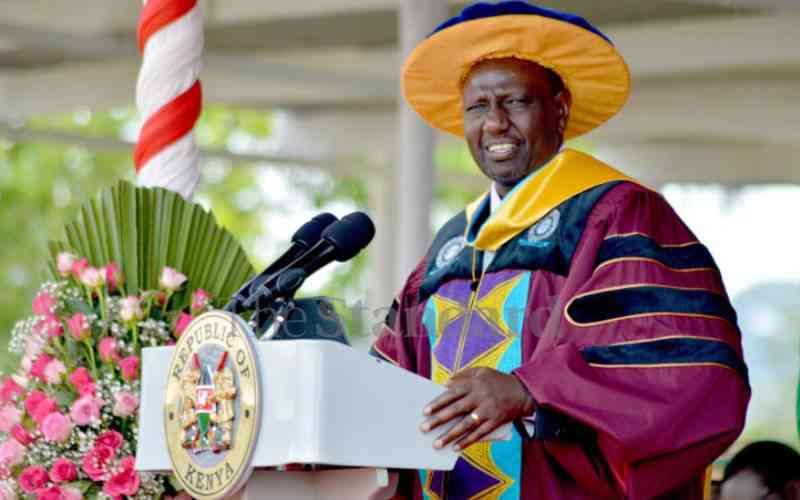
The government has promised Kenyans that the education sector will improve.
President William Ruto has stated that he has used the last four months of his presidency to lay the groundwork for a revolution in the education sector.
Ruto promised to abolish Helb and TVET funding and to establish national skills and funding council to connect the two levels in order to provide a credit transfer framework and to support academic progression.
The National Education Fund will mobilise grants, bursaries, and scholarships from private and public sponsors to cover non-tuition costs.
"To bridge the current higher education funding gap of up to 45 per cent, the government will establish the National Skill and Funding Council that amalgamates Helb, TVET, and University Funding Board.
"This immediately doubles the current Higher Education Loans Board funding from Sh11 billion to Sh22 billion and eliminates interest on Helb loans."
While ringing in the New Year at State House in Mombasa, Ruto said the government intends to invest more money in the sector to give it new life.
He said 30,000 additional teachers for basic education, as well as 3,000 tutors for TVET institutions, will be hired this year to ensure a smooth transition into the first Junior Secondary School level.
"We intend to use our education system to develop world-class human capital. This is why, in January, we set out to hire more teachers to ensure that our primary to junior secondary transition is flawless," President Ruto said.
Ruto said the government will hire a portion of the intended 58,000 teachers per year for Sh25 billion over the next two years to address the sector's current shortage of 116,000.

"We commit to ensuring government-initiated in-service training, including Teacher Continuous Professional Development," he said.
Ruto also said the government intends to spend Sh15 billion to equip 70 TVET institutions to assist in the training of learners and prepare them for the labour market.
In its Education Charter, the Kenya Kwanza Alliance also pledged to complete the construction of Vocational Training Centres in each ward, as well as to ensure every constituency has a Technical Training and Vocational Educational Training Institution (TVET).
"Within the first two years, we will establish and fully equip a Tvet institution in each of the remaining 52 constituencies," the charter states.
"We will also hire tutors to look after our TVET institutions, because TVET has the best human capital that is tailored towards Science, Technical, Engineering, and Mathematics (Stem) subjects and areas that will lead us to engineering, because that is the future we seek."
Ruto said the recommendations of the Presidential Working Party will inform the government on how to streamline human capital and sharpen and solve challenges in the education sector.
"We know many universities are facing numerous challenges and significant debts as a result of the programme's length. We will focus on ensuring our universities receive adequate attention to provide quality education."
He also proposed establishing a public university and increasing the number of technical universities from three to eight across the eight regions from the current three.
Universities will be forced to focus on their comparative advantage in education.
"For example, the universities in Mombasa should have courses that focus on the blue economy while those in Turkana will focus on mining."
 The Standard Group Plc is a multi-media organization with investments in media platforms spanning newspaper print
operations, television, radio broadcasting, digital and online services. The Standard Group is recognized as a
leading multi-media house in Kenya with a key influence in matters of national and international interest.
The Standard Group Plc is a multi-media organization with investments in media platforms spanning newspaper print
operations, television, radio broadcasting, digital and online services. The Standard Group is recognized as a
leading multi-media house in Kenya with a key influence in matters of national and international interest.



